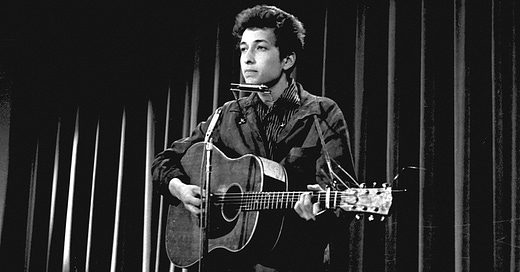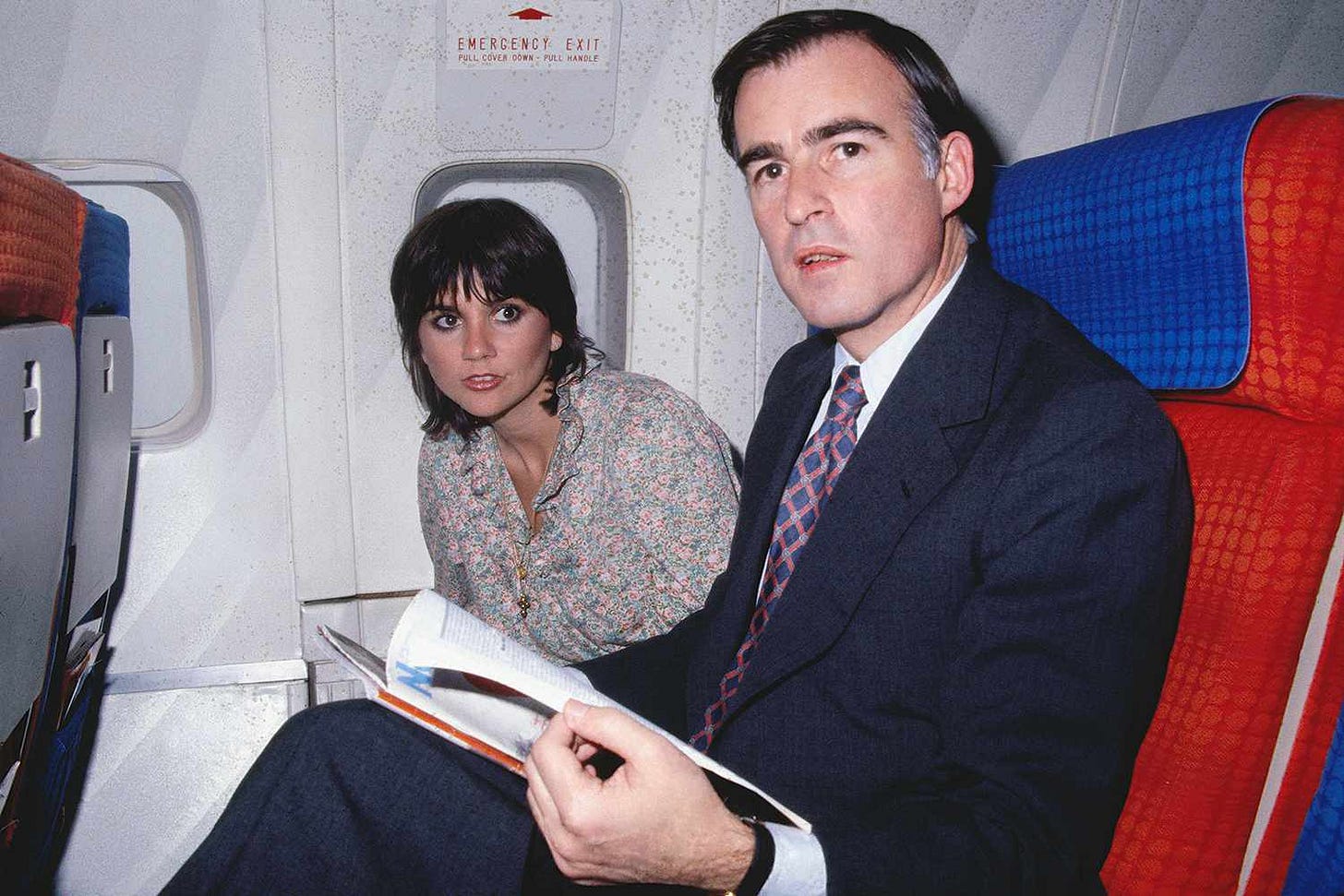"Blowin' in the Wind" by Bob Dylan (1963)
My favorite protest songs from the 60s and early 70s
This is the first in a series of protest songs from the sixties and early seventies that I’m sending out over the next two weeks while I take a break from researching and writing.
This past week I sent out an in-depth piece on women singer-songwriters — which had an amazing response, so thank you, everyone! — and started to follow up with a piece about Linda Ronstadt only to become overwhelmed.
One reason is her extraordinary career in terms of its longevity, productivity, diversity (in terms of musical genres), and accomplishments, and how to give that its fair due.
The other reason is that I couldn’t believe how she was portrayed in articles and books of that time period, in a disrespectful and dismissive way I hadn’t found with the other women I’ve been profiling. Was it a historical change in the industry in the mid to late seventies, or because she was romantically affiliated with the governor of California (Jerry Brown, with her below), or because she spoke her mind in interviews, or because women in the rock world were sexualized more than the folk singers, or a backlash against the women’s movement, or what?
This normally wouldn’t stop me in my tracks and I’d enjoy the challenge of figuring it out. But, instead, my usual optimism gave way to a feeling of distress, ennui, procrastination, and indulgence in my usual distractions — a jigsaw puzzle with a side of wine! It was clear, a break to renew and regroup was in order.
I’ve been wanting to do a series on protest songs for a while now, not to encourage you to protest or take a particular position on any political, economic, or social issue. Au contraire, mon ami. The reason is my belief that the most beloved and the most influential songs tend to result from passionate emotions, and emotions are running on steroids during protest movements. It’s no wonder then that great songs have emerged during times of social and political upheaval.
I was a kid when these songs came out, and I had only a vague idea of what they were about. Honestly, I didn’t care. All that mattered was that they had an immediate effect on me. I could feel, at some primal level, that they had power and meaning, and I knew that I wanted to hear them again and again.
Given that I’m setting up the posts in advance, I’m not going to write much. They are from the period from 1963 to 1971 and almost all are reactions to the Vietnam War. Instead, I’m simply going to curate them for your listening pleasure, along with links and footnotes if you want to know more about the context behind them. If you have interesting context, I encourage you to share it in the comments.
Today we start with perhaps the most famous anti-war balladeer of the 1960s, the freewheelin’ Mr. Bob Dylan.
Protest song of the day
“Blowin’ in the Wind” is one of Bob Dylan’s most beloved, requested, and performed songs.
The lyrics, in my opinion, cannot be surpassed. Do they not say it all in just three eight-line verses? Check them out on Bob’s official website.
Here’s what Bob had to say about the meaning of the song1:
“There ain't too much I can say about this song except that the answer is blowing in the wind. It ain't in no book or movie or TV show or discussion group. Man, it's in the wind – and it's blowing in the wind. Too many of these hip people are telling me where the answer is but oh I won't believe that. I still say it's in the wind and just like a restless piece of paper it's got to come down some ... But the only trouble is that no one picks up the answer when it comes down so not too many people get to see and know ... and then it flies away. I still say that some of the biggest criminals are those that turn their heads away when they see wrong and know it's wrong. I'm only 21 years old and I know that there's been too many wars ... You people over 21, you're older and smarter.”
The song is considered one of the greatest anti-war songs of all time, but also one of the greatest songs period2. A song involving only an early twenties young man with a guitar, a harmonica, and his voice, questioning the policies of one of the most powerful governments in history and challenging those he believed to be empowering it with their silence.
It’s gobsmacking, even today:
Song credits
Songwriter - Bob Dylan
Producer - John H. Hammond
Musician:
Bob Dylan – acoustic guitar, harmonica, vocals
From Sing Out! in June 1962, as quoted in The Bob Dylan Encyclopedia (2006) and lifted from Wikipedia.
“In 1994, the song was inducted into the Grammy Hall of Fame. In 2004, it was ranked number 14 on Rolling Stone magazine's list of the "500 Greatest Songs of All Time".” (Source: Wikipedia, August 25, 2024)






Yeah it’s an interesting dynamic. A lot of these artists find that when they “make it big”, they’re forced to sell at least a piece of their soul.
I did the security thing for 25 years before I finally had to get off the carousel. It took me some time to acclimate to the real world but I did make it.
Starting in the 1970s, followed Linda Ronstadt's career since I was living with a distant cousin of hers who had inherited some of the vocal gene and physical resemblance. You are right in all respects regarding the controversies surrounding her. A complicated soul with an operatic voice caught in the throes of public opinion. And an enigma. Censored.